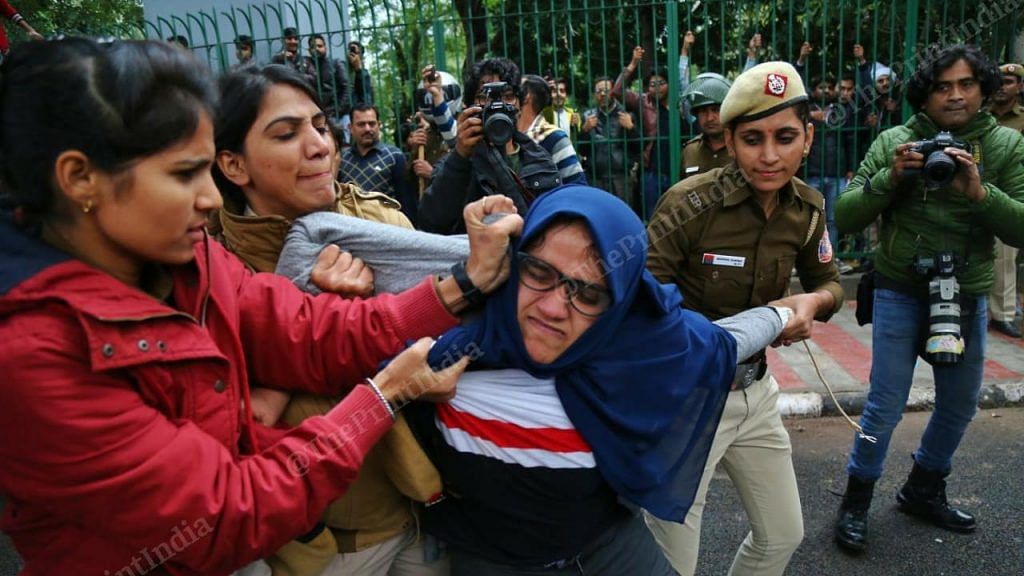There’s justified concern about the Citizenship Amendment Act. For the first time in India’s history as an independent republic, religion has been introduced as a criterion of eligibility for citizenship, albeit for migrants from India’s Islamic neighbours and not current Indian citizens. These migrants can be Sikhs, Buddhists, Hindus, Jains, Parsis and Christians – just not Muslims.
What makes the Citizenship Amendment Act (CAA) controversial is the Narendra Modi government’s promise of bringing in a nationwide National Register of Citizens (NRC), which would require everyone to produce documents validating their citizenship. It’s legitimate to worry that the combination of CAA and NRC will disenfranchise primarily Muslims, since other religious groups will have the cover of the new citizenship law even if they can’t produce documents required under the NRC exercise.
It’s clear that the CAA and the prospect of a nationwide NRC represent a fundamental shift in the secularism embedded in India’s Constitution. Protests against the CAA have gripped many parts of India, starting with Assam and then moving to Delhi and elsewhere. While the majority of protests seem to have gone off peacefully, unfortunately, some have turned violent and the police in a few instances appear to have used excessive force in quelling the demonstrations.
Also read: The global wildfire of street protests has finally reached India
Two faces of the protest
One of the early protests against the CAA that attracted widespread media coverage took place at Jamia Millia Islamia (JMI) in Delhi. Details of exactly what happened remain murky, with allegations by some of the protesters against the Delhi Police and the suggestion that the protests may have been infiltrated by “outsiders” bent on causing trouble.
Two young women, Ladeeda Sakhaloon and Ayesha Renna, both students of JMI, emerged as “sheroes” and became the faces of the protests. They were captured on video protecting their male friend while standing up to the police. Many observers, including myself, lauded these women for their courage. The powerful image of women in hijab protecting their male colleague defied many stereotypes of an observant Muslim woman, and thereby captured the Indian public’s attention and admiration.
Soon after they became instant celebrities, we started to learn more about them from their Facebook pages, which revealed some disturbing and problematic information. Sakhloon, in one of her posts, appears to endorse the chanting of Islamic slogans “Allahu Akbar” and “Insha Allah” and much more problematically, appears to endorse the Mappila uprising under the British colonial rule.
Also read: Not Owaisi, not TMC, India’s Muslims must return to Congress after citizenship row
Countering religious CAA with religious slogans
It is of course true that both Insha Allah and Allahu Akbar are standard Islamic expressions used in common speech, but their use in the context of a protest against the religiously inspired CAA is obviously problematic. After all, the main objection to the CAA is that it brings religion in through the back door. How bizarre, therefore, to counter it by bringing in religion rather than espousing secular values.
As worrying as this is, far more problematic is the apparent endorsement of the Mappila uprising, which occurred in 1921 in Kerala. The inspiration of the rebels was explicitly Islamic; they specifically targeted Hindus, butchered some and forcibly converted others, with the end goal being the creation of an Islamic State. The fact that the roots of the rebellion may have been economic can’t blind us to the reality of what motivated the rebellion and the ideology that governed it.
One would have thought that when these facts on the women’s views became known, mainstream supporters of the protest movement would back away, and some did. However, many others doubled down on these problematic sheroes, some even excusing the Mappila rebels as “freedom fighters” and denying that the overt religiosity of the two women could have a damaging effect on the credibility of the protests.
Also read: Violence over citizenship law ebbs in Bengal, but Mamata-Governor war of words continues
Losing legitimacy to far-Left
In the end, this was a self-goal by the protesters in their movement against the CAA, and perhaps we should not have been surprised. Liberal opposition to the Modi government, starting in 2014, has been contaminated and delegitimised by the inclusion of the far-Left, radical, Communist and Islamist elements whose philosophies are no more in keeping with India’s secular traditions than an extreme Hindutva position would be. At least the Indian far-Right is honest about its ideology and religious motivations and does not pretend to pay lip service to Nehruvian secularism. However, liberals who shield radicals in their ranks are hypocritical and dishonest about their motivation and this only serves to discredit such opposition in general.
Going forward, legitimate liberal and secular opposition to the CAA and the NRC must purge itself of radical and extreme elements whose only purpose is to further polarise the issue and not to find a sensible, centrist middle ground that all reasonable people can agree on. If this doesn’t happen, the protest movement against the CAA will lose all credibility in the eyes of the Indian public and that would be a shame. There are many legitimate questions to be raised about the CAA but this can only be done by upholding India’s secular traditions and not caving into religious chauvinism of another kind.
Rupa Subramanya is an economist and commentator based in Mumbai. She tweets @rupasubramanya. Views are personal.
